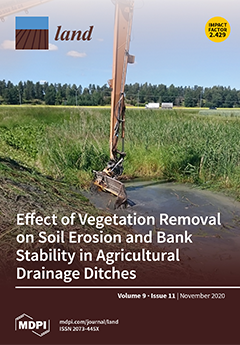Resources
Displaying 1216 - 1220 of 2258An Evaluation of Public Spaces with the Use of Direct and Remote Methods
Public spaces play many important roles and constitute a vital component of the urban fabric, in particular in towns with historical centers. Effective management of public space should be based on the results of qualitative assessments. The quality of public space is usually evaluated directly during field surveys. However, field methods require considerable effort and time, which is why a remote sensing method based on satellite images and the Street View technology was proposed in this paper.
The Influence of Innovation Resources in Higher Education Institutions on the Development of Sci-Tech Parks’ Enterprises in the Urban Innovative Districts at the Stage of Urbanization Transformation
Innovation is an inevitable way to enhance regional competitiveness, promote urbanization and achieve sustainable development. The sci-tech park is one of the main land use types in the construction of a new town and the critical space carriers of urbanization. This study focuses on the correlation between higher education institutions (HEIs) innovation and sci-tech enterprises (STEs) development, and the Hangzhou West Hi-tech Corridor as a case study.
‘Mind the Gap’: Reconnecting Local Actions and Multi-Level Policies to Bridge the Governance Gap. An Example of Soil Erosion Action from East Africa
Achieving change to address soil erosion has been a global yet elusive goal for decades. Efforts to implement effective solutions have often fallen short due to a lack of sustained, context-appropriate and multi-disciplinary engagement with the problem.
Quantifying Climate-Wise Connectivity across a Topographically Diverse Landscape
Climate-wise connectivity is essential to provide species access to suitable habitats in the future, yet we lack a consistent means of quantifying climate adaptation benefits of habitat linkages. Species range shifts to cooler climates have been widely observed, suggesting we should protect pathways providing access to cooler locations. However, in topographically diverse regions, the effects of elevation, seasonality, and proximity to large water bodies are complex drivers of biologically relevant temperature gradients.
Landscape Potential and Light Pollution as Key Factors for Astrotourism Development: A Case Study of a Slovak Upland Region
Astrotourism is considered to be a modern form of ecotourism. The main resource for astrotourism is a high-quality night sky, but this is very sensitive to natural as well as anthropogenic factors; for example, land utilization and expansion of urban areas often cause the negative effect of light pollution.



